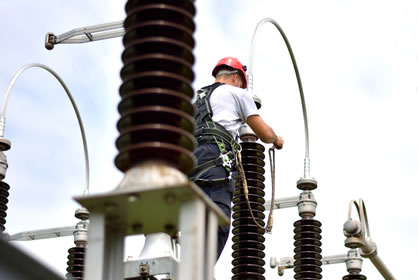Public Utility Litigation
In addition to the more common litigation areas, Salmon, Ricchezza, Singer & Turchi LLP also litigates matters on behalf of utilities. These cases span a variety of areas including electrical contact cases, vegetation management issues, gas explosions, falls, improper markouts, toxic inhalation and fires. Our attorneys are well versed in the technical nature of this work and continuously update their base of knowledge through client meetings, continuing legal education and individual study.
We have also developed a network of knowledgeable experts who have a familiarity with utility related work. These experts allow us to focus the case theories in the more complex cases as we pursue targeted discovery and investigation. We have worked with experts who specialize in transmission and distribution, substations, nuclear facilities, residential wiring, transformers, gas migration, underground strikes, roadway construction, fire cause and origin, utility business practices, pole placement etc. We have an emergency response team for our clients and stand ready to mobilize on a 24/7 basis through our emergency response number, 1-800-286-8013.
In addition to the technical experience that we bring to utility matters, we also recognize the public relation sensitivities that go along with representing regulated industries who provide valuable resources and services directly to the public. We also recognize the toll that litigation can take on an organization and its employees. As a result, we work closely with our utility clients so that we can pursue the most direct and cost-efficient solution to their problem. In some instances, we may seek a pre-suit settlement with a confidentiality agreement. In others, we may harness our experience to litigate the dispute through post discovery resolution or trial as needed. We understand that some situations can be negotiated, while other times, a client is better off protecting their rights in court. At the conclusion of the matter, we make recommendations to avoid future problems and litigation which can be costly. We believe that this latter service is perhaps the most important part of our relationship with the utilities.


